Here are some events that happened on July 29th. It could be an event or a person that died or was born on that day
1836 – Inauguration of the Arc de Triomphe in Paris, France
The Arc de Triomphe de l'Étoile (literal translation: "Triumphal Arch of the Star") is one of the most famous monuments in Paris, France, standing at the western end of the Champs-Élysées at the centre of Place Charles de Gaulle, formerly named Place de l'Étoile — the étoile or "star" of the juncture formed by its twelve radiating avenues. The location of the arc and the plaza is shared between three arrondissements, 16th (south and west), 17th (north) and 8th (east). The Arc de Triomphe honours those who fought and died for France in the French Revolutionary and Napoleonic Wars, with the names of all French victories and generals inscribed on its inner and outer surfaces. Beneath its vault lies the Tomb of the Unknown Soldier from World War I.
Some stamps from France depicting the Arc de Triomphe
1890 Died: Vincent van Gogh, Dutch painter and illustrator (b. 1853)
Vincent Willem van Gogh (30 March 1853 – 29 July 1890) was a Dutch post-impressionist painter who is among the most famous and influential figures in the history of Western art. In just over a decade he created about 2,100 artworks, including around 860 oil paintings, most of them in the last two years of his life. They include landscapes, still lifes, portraits and self-portraits, and are characterised by bold colours and dramatic, impulsive and expressive brushwork that contributed to the foundations of modern art. He was not commercially successful, and his suicide at 37 followed years of mental illness and poverty
On 27 July 1890, aged 37, Van Gogh shot himself in the chest with a 7mm Lefaucheux à broche revolver. There were no witnesses and he died 30 hours after the incident. The shooting may have taken place in the wheat field in which he had been painting, or a local barn. The bullet was deflected by a rib and passed through his chest without doing apparent damage to internal organs – probably stopped by his spine. He was able to walk back to the Auberge Ravoux, where he was attended to by two doctors, but without a surgeon present the bullet could not be removed. The doctors tended to him as best they could, then left him alone in his room, smoking his pipe. The following morning Theo rushed to his brother's side, finding him in good spirits. But within hours Vincent began to fail, suffering from an untreated infection resulting from the wound. He died in the early hours of 29 July. According to Theo, Vincent's last words were: "The sadness will last forever"
Some stamps from the Netherlands, Monaco, Aruba and Ukraine depicting Vincent van Gogh or his works
1900 – In Italy, King Umberto I of Italy is assassinated by the anarchist Gaetano Bresci.
Umberto I (Italian: Umberto Rainerio Carlo Emanuele Giovanni Maria Ferdinando Eugenio di Savoia; 14 March 1844 – 29 July 1900), nicknamed the Good (Italian: il Buono), was the King of Italy from 9 January 1878 until his assassination on 29 July 1900.
Umberto's reign saw Italy attempt colonial expansion into the Horn of Africa, successfully gaining Eritrea and Somalia despite being defeated by Abyssinia at the Battle of Adwa in 1896. In 1882, he approved the Triple Alliance with the German Empire and Austria-Hungary.
He was deeply loathed in leftist circles because of his conservatism and support of the Bava-Beccaris massacre in Milan. He was especially hated by anarchists, who attempted to assassinate him during the first year of his reign. He was killed by another anarchist, Gaetano Bresci, two years after the Bava-Beccaris massacre.
Some stamps from Italy depicting Umberto I
1948 – Olympic Games: The Games of the XIV Olympiad: After a hiatus of 12 years caused by World War II, the first Summer Olympics to be held since the 1936 Summer Olympics in Berlin, open in London.
The 1948 Summer Olympics, officially known as the Games of the XIV Olympiad, was an international multi-sport event which was held in London, United Kingdom from 29 July to 14 August 1948.
After a twelve-year hiatus caused by the outbreak of World War II; these were the first Summer Olympics held since the 1936 Games in Berlin. The 1940 Olympic Games had been scheduled for Tokyo, and then for Helsinki; the 1944 Olympic Games had been provisionally planned for London. This was the second occasion that London had hosted the Olympic Games, having previously hosted them in 1908, forty years earlier. The Olympics would again return to London 64 years later in 2012, making London the first city to have hosted the games three times, and the only such city until Paris and Los Angeles host their third games in 2024 and 2028, respectively. The 1948 Olympic Games were the first of two summer Olympic Games held under the IOC presidency of Sigfrid Edström.
Top 5 medal count
| Rank | Nation | Gold | Silver | Bronze | Total |
|---|---|---|---|---|---|
| 1 | United States | 38 | 27 | 19 | 84 |
| 2 | Sweden | 16 | 11 | 17 | 44 |
| 3 | France | 10 | 6 | 13 | 29 |
| 4 | Hungary | 10 | 5 | 12 | 27 |
| 5 | Italy | 8 | 11 | 8 | 27 |
Some stamps from Great Britain, Iceland, Monaco and Austria issues to commemorate the 1948 Olympics

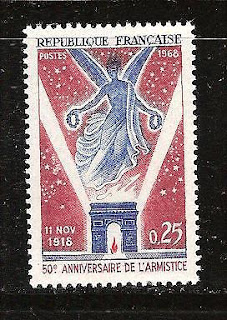
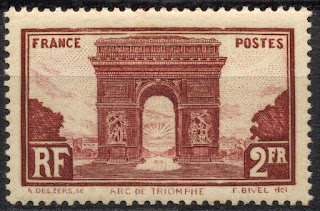





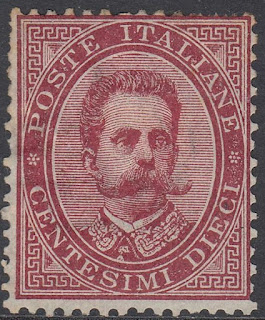

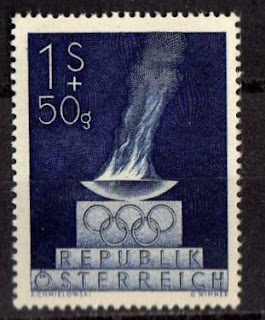



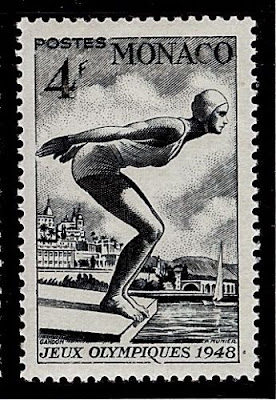
No comments:
Post a Comment